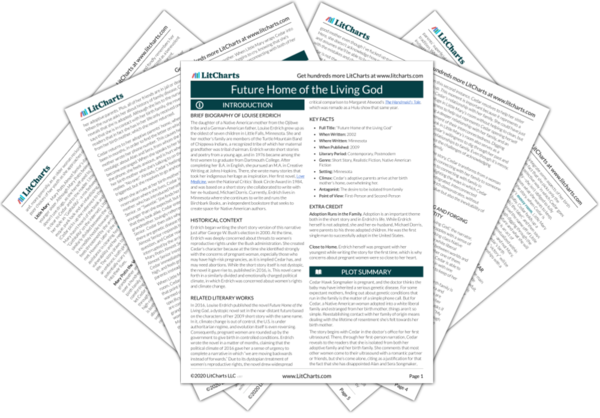Again, the implication that Cedar still has thoughts and behaviors that bring her back to her childhood emphasizes that growth in this story is nonlinear. Everything she observes on her way to the reservation highlights the mixing of the past and the future. For instance, the fact that her car “will not die” reveals a desire for something in the past to end to make room for the future—in other words, Cedar
wants the car to die in order to get a new one, but it refuses. Similarly, the billboards reflect an eagerness for a future event—the rapture—that is nowhere in sight. Cedar’s sense that she is moving “backwards and forwards at the same time” perfectly captures the confusion of time in this passage. She is moving towards her past in order to make room for a better future.
